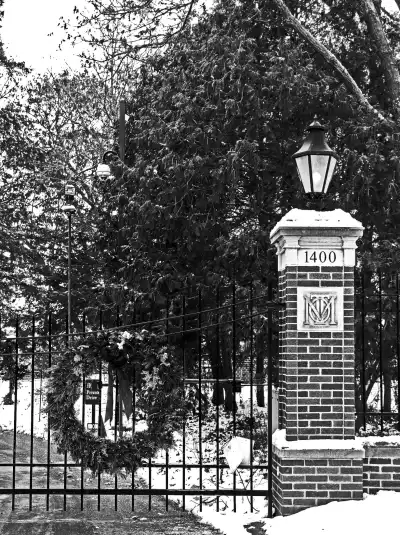By Harold C. Ford
As the newly-constituted Flint Board of Education is beginning to look a lot like the old board, with chaos repeatedly breaking out, a multitude of sobering realities about the school district are undeniable. Arguably, Flint’s public schools are in freefall.
- Its student population has fallen from around 40,000 a few decades ago to about 3,000 at present. Though economic malaise and population loss explain away most of that loss,approximately two-thirds of K-12 students and their parents that reside in Flint opt for enrollment in other public schools through Michigan’s Schools of Choice program or in the area’s private, parochial, and charter options. Each student takes with him/her about $9,000 in state aid.
- Staff attrition at FCS has resulted in at least 90 vacant positions at present according to Jones. In remarks before the FBOE on March 8, teacher’s union official Bruce Jordan noted the “massive amounts of exodus of teachers.”
- FCS standardized test scores are generally dismal. [EVM has reported on them in the past and will report on them again in the near future. The next round of testing is due in April.
- Dozens of properties have been abandoned, some for decades. None of those properties have been sold. Abandoned buildings – liability pitfalls waiting to happen – are often the targets of arsonists, scrappers, and ne’er-do-wells.
- The district’s legal machinations involving lawsuits, threatened lawsuits, and at least three legal firms are too complex and mostly hidden from public view to attempt an explanation here.
- Infrastructure challenges in a building lineup that averages 70+ years have included parking lots, athletic facilities, internet capabilities, water supply, the electrical grid, black mold, bat infestation(s), and HVAC systems (heating, ventilation, and air conditioning).
-

Durant-Tuuri Mott school on University Ave near Kettering University. (Photo by Tom Travis)
Last year, the district was told by an accounting firm that it has about
twice the number of school buildings it needs.Yet –excepting the unfinished upgrades at the Doyle/Ryder, and Potter buildings, and resurfacing of some parking lots – no plans have been adopted to downsize the district’s building lineup or put up new structures. A years-ago offer by Flint’s largest nonprofit foundation to help build new facilities has never gotten past the talking stage.
Background and further detail on these stories can be found at eastvillagemagazine.org.
- Though temporarily flush with cash due to COVID relief dollars totaling about $150 million, FCS is likely to find itself in a familiar long-term debt/annual deficit posture by 2024 if it does not reduce its expenditures and/or increase revenues; 2024 is when COVID funds will disappear.
- FCS leadership is uncertain, constantly changing: At least eight superintendents have helmed the district in the last 18 years since 2005: Walter Milton; Linda Thompson; Lawrence Watkins; Bilal Tawwab; Gregory Weatherspoon; Derrick Lopez; Anita Steward; and Kevelin Jones. The accompanying changes in central administration and building administration have been even more dizzying.
- Nearly 20 persons have cycled in and out of positions on the seven-person FlinBoard of Education (FBOE) in the past 27 months since Jan. 2021:
Casey Lester; Betty Ramsdell; Blake Strozier; Adrian Walker; Vera Perry; Diana Wright; Carol McIntosh; Allen Gilbert; Chris Del Morone; Linda Boose; Danielle Green; Laura MacIntyre; Joyce Ellis-McNeal; Claudia Perkins; Dylan Luna; Melody Relerford; Michael Clack; and Terae King. Each brings his/her own assortment of strengths, flaws, and hopes.

FBOE member Terae King (far right) in discussion during a recent FBOE committee meeting along with FCS employees. (Photo by Tom Travis)
“Governance”
King may have identified what ails district leadership when, apparently exasperated, he concluded on March 15: “We need to talk about board issues in a governance meeting.” One week later, at the Finance COW meeting, King again called for attention to governance.
“Let’s talk about solutions,” he pleaded.
“We need the Michigan Association of School Boards.”
[EVM endeavors to report on nonprofit governance issues in the future using information from the Michigan Association of School Boards, BoardSource, Diligent, and other sources.]
Governance, narcissism, and tragedy
Of William Shakespeare’s King Lear, Irish playwright George Bernard Shaw wrote: “No man will ever write a better tragedy…” The play begins, according to literary critic Dennis Brown, by revealing Lear as a person that governs with “near-fairy tale narcissism.”
Of several main characters in Lear, American writer Isaac Asimov observes: “All were haughty, arrogant, and ruthless in using power when they had it.” The play ends tragically with the deaths of nearly all main characters.
* * * * *
Future scheduled meetings of the FBOE: April 12 (COW or Committee of the Whole); April 19; May 10 (COW); May 17; June 14 (COW); June 21. Meetings start at 6:30 p.m. at Accelerated Learning Academy, 1602 S. Averill Ave., Flint, MI 48503. A link will be posted at the FCS website to join the meeting online; visit www.flintschools.org. Recordings of the meetings can be accessed via YouTube. Also, check the website (flintschools.org) for other FBOE meetings that the public can attend.
* * * * *
Editor’s Note: Education Beat reporter Harold Ford has been an educator for over 40 years in the Beecher Schools holding several positions including 30 years as a classroom teacher, 10 years as a non-profit director and three years as a school administrator.









You must be logged in to post a comment.